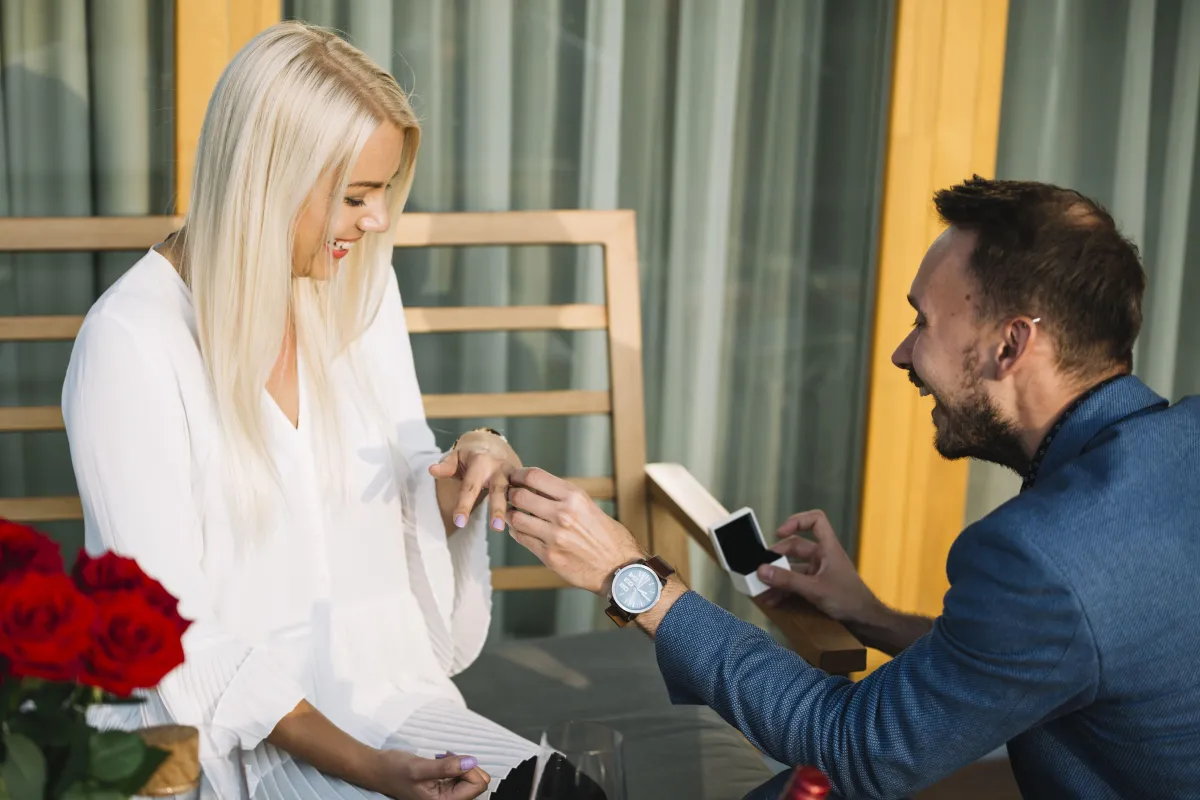How Men Cope with Divorce: Real Support for Emotional Survival and Growth

Introduction
Divorce isn’t just a legal or emotional event—it’s a full-blown identity shift. For many men, it shakes the core of how they define themselves: as a partner, a father, a provider, or even a protector. And yet, most men going through divorce hear the same tired advice: “Man up.” “Move on.” “It could be worse.”
If you’re here, you’ve probably heard all that—and it hasn’t helped.
This page is for men who feel like they’re unraveling in silence. Whether you're hiding your pain behind work, sarcasm, or a bottle, know this: You’re not weak. You’re hurting. And there is a way forward.
Inside, you'll find:
Why divorce hits men differently
Signs you're struggling more than you realize
Practical tools to cope without shame
Ways to rebuild identity, especially as a father
Support systems that actually help men heal
Why Divorce Hits Men Differently
Emotional Suppression and Social Conditioning
From a young age, many boys are told not to cry, not to complain, not to “act soft.” That message doesn’t just disappear in adulthood—it shows up as an emotional shutdown when life falls apart.
But bottling up pain leads to:
Sleepless nights
Outbursts of anger
Addictive coping (drinking, sex, overworking)
Emotional detachment from others
It’s not weak to talk about what you’re going through. In fact, it’s self-leadership.
Loss of Identity, Structure, and Purpose
Men often wrap their identity in their roles—husband, father, provider. So when the marriage ends, it can feel like your whole foundation crumbles.
You might ask:
“What’s my purpose now?”
“Who am I without this family structure?”
“Am I still a good dad if I’m not there every day?”
This confusion is normal. It doesn’t mean you’re failing—it means you’re transitioning.
The Silence Around Male Grief
While women are more likely to seek therapy or lean on community, men often isolate. And isolation makes the pain worse.
Stat: According to a 2022 study in the JAMA Network, divorced men are more likely to suffer from depression, anxiety, and physical health issues than divorced women.
You don’t have to be loud about your pain. But you do have to face it.
Signs You Might Be Struggling More Than You Think
You may not be openly sobbing—but your body and habits are sending warning signs.
Emotional and Physical Symptoms to Watch
Trouble sleeping or waking up too early
Drinking more than usual
Short temper or rage outbursts
Loss of appetite or overeating
Constant fatigue or lack of motivation
Masking with Humor, Distraction, or Silence
Many men cope by:
Making jokes about “freedom”
Throwing themselves into work
Numbing with scrolling, gaming, or casual sex
These aren’t bad in moderation—but if they’re all you’re doing, they may be delaying your healing.
Self-Check Quick Quiz:
Do you feel like you’re pretending to be okay?
Do your highs and lows feel out of control?
Do you feel isolated, even around people?
Have you ever thought “I don’t recognize myself anymore”?
If you answered yes to two or more, it’s time to take action.
Real Tools Men Can Use to Cope
Build a Routine That Includes Emotional Release
Don’t just survive—stabilize. A daily routine helps rewire your brain and body after emotional shock.
Try:
Morning workouts or walks to reset your system
Journaling without overthinking (“What am I angry about today?”)
Men’s groups or forums like r/MensLib or local support meetups
Avoid letting work become your only outlet. You’re a person—not just a paycheck.
Learn to Express Emotion in Safe Spaces
Vulnerability doesn’t mean you cry in public or spill your heart to everyone. It means:
Admitting when you're struggling
Saying “I’m not okay today” to a trusted friend
Recognizing that anger is often grief in disguise
You don’t have to solve everything. You just have to stop pretending you’re fine.
Consider Therapy or Coaching
Modern therapy isn’t just talking about your feelings for an hour. It's:
Problem-solving with someone trained to guide you
Rewiring how you respond to stress, pain, and loss
Learning to process without judgment
Expert Note: "Men often struggle more because they’re less likely to process the grief. Therapy isn’t weakness—it’s a strategy." — Dr. Ryan Howes, clinical psychologist
Try platforms like:
Rebuilding Identity and Self-Worth
You Are More Than a Husband or Provider
When the title is gone—so is the certainty. But this is your chance to discover who you are beyond the role.
Ask yourself:
What kind of man do I want to be now?
What did I neglect while trying to hold the marriage together?
What do I want to feel proud of next year?
Focus on the “Man You’re Becoming”
Growth after divorce doesn’t happen in leaps. It happens in:
Saying no to toxicity
Cooking your own meals
Signing up for a class, a trip, or a therapy session
“Divorce doesn’t make you less of a man — it invites you to become more of yourself.”
You get to define your worth now. No one else.
Fatherhood After Divorce (If Applicable)
Staying Connected Without Guilt
You may not see your kids every day—but that doesn’t mean you’re not an involved father.
Focus on:
Quality time over quantity
Consistency over grand gestures
Showing up—even if it’s just a call or a game night
Modeling Emotional Health for Your Kids
When your kids see you handle pain with openness and accountability, they learn that:
Feelings aren’t weakness
Men are allowed to feel
Healing is possible
Your healing becomes their permission to feel too.
Final Thoughts: There’s Strength in Letting Go
You don’t need to have all the answers today.
You don’t need to prove anything to anyone.
You just need to take one step toward healing—without shame.
Let go of:
The pressure to be invincible
The silence that isolates
The belief that no one understands
Choose:
Growth
Support
Yourself
Because getting through divorce as a man isn’t about “getting over it.” It’s about rebuilding with truth, not toughness.
Related Posts

When to Start Dating Again: Signs You’re Ready
After divorce, the idea of dating can feel like stepping into a storm—exciting, but scary. You might wonder if you’re ready or if it’s too soon to try. At Rebuilders International, we’ve spent over 40 years helping people find clarity with our proven approach, backed by the Fisher Divorce Adjustment Scale (FDAS). This isn’t about rushing into love—it’s about knowing you’re ready to connect authentically. Here’s how to spot the signs and take that step with confidence.
Why Timing Matters for Dating
Jumping into dating too early can stir up old wounds, but waiting forever might mean hiding from life. Friends might nudge you to “get back out there,” but readiness isn’t about a calendar—it’s about your heart. Our method, tested by thousands, shows that dating works best when you’re grounded in yourself. The FDAS, with its .93 reliability, proves emotional clarity makes all the difference. Let’s explore the signs you’re there.
5 Rebuilders Signs You’re Ready to Date
These signs, drawn from our 10-week workshop, use our unique tools to help you know when you’re ready, rooted in trust and self-awareness:
You’re Done with “What Ifs”
If your mind’s no longer stuck on “Why did it end?” or “Could I have fixed it?” you’re moving forward. Our free self-test checks your disentanglement score—high scores mean you’re free from past loops. A group member said, “I stopped replaying the past and started seeing the future.” This clarity, like our thinking-phase work, shows you’re ready for new connections.You Feel “I Am Enough”
Dating from a place of lack invites old patterns. Our core belief? You’re a “gem,” whole as you are. If you can say, “I am enough,” and mean it, you’re on solid ground. A woman in our support group said this gave her confidence to chat without needing approval. This self-worth, tied to our identity tools, is a green light for dating.You Enjoy Your Own Company
If alone time feels peaceful, not lonely, you’re likely ready. Our groups teach that liking yourself is the foundation for liking someone else. One client said rediscovering solo hikes made him excited to share that joy. Check your self-test’s self-worth score—strong numbers here mean you’re not dating to fill a void, a key from our identity phase.You Trust Your Boundaries
Readiness means knowing what you want—and what you won’t accept. Our exercises, like listing your “must-haves,” help you set clear boundaries. A man in our online groups said this stopped him from chasing unhealthy matches. If you feel confident saying “no” kindly, our relationship-phase work shows you’re prepared to date.You’re Curious, Not Desperate
If you’re excited to meet someone new—not to fix your life, but to share it—you’re in the right headspace. Our “needs check-in” tool asks, “What do I want?” A participant said feeling curious about a date’s story, not their “potential,” was her sign. High social trust scores on our self-test signal you’re ready to connect from care, not need.
Dating on Your Terms
Knowing when to start dating again is about trusting yourself, not checking a box. Our structured approach has helped thousands since 1974, with workshop completers since 2021 showing stronger social trust via FDAS scores. You can step into dating with clarity too, one honest moment at a time.
Need Clarity? We’re Here
Figuring out if you’re ready can be tricky, but our programs—online, in-person, or self-paced—offer tools and a community to guide you. Visit our homepage or book a free clarity call. Want to start small? Join our free support group Tuesdays online.
You’re Ready When You Say So
You’re built for connection on your own terms. What’s one sign you’re noticing in yourself today? Share below—we’re cheering for you!


